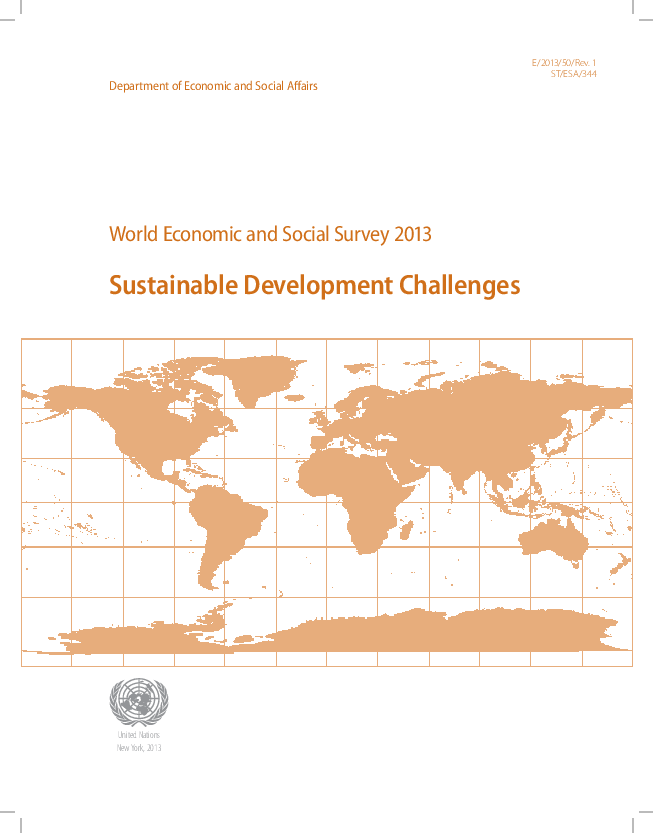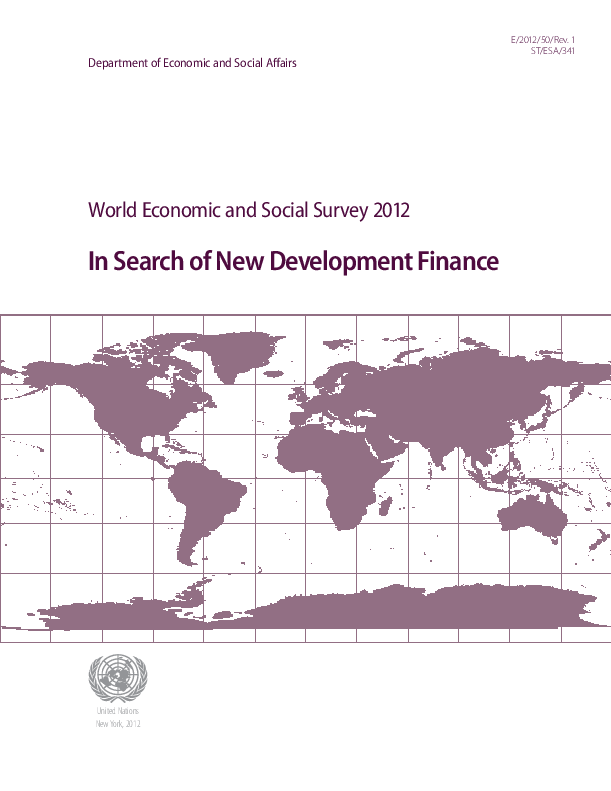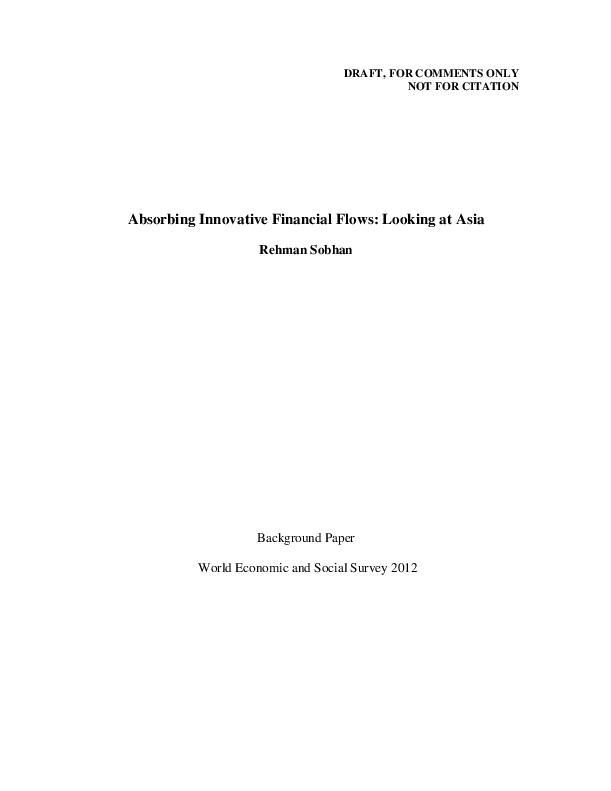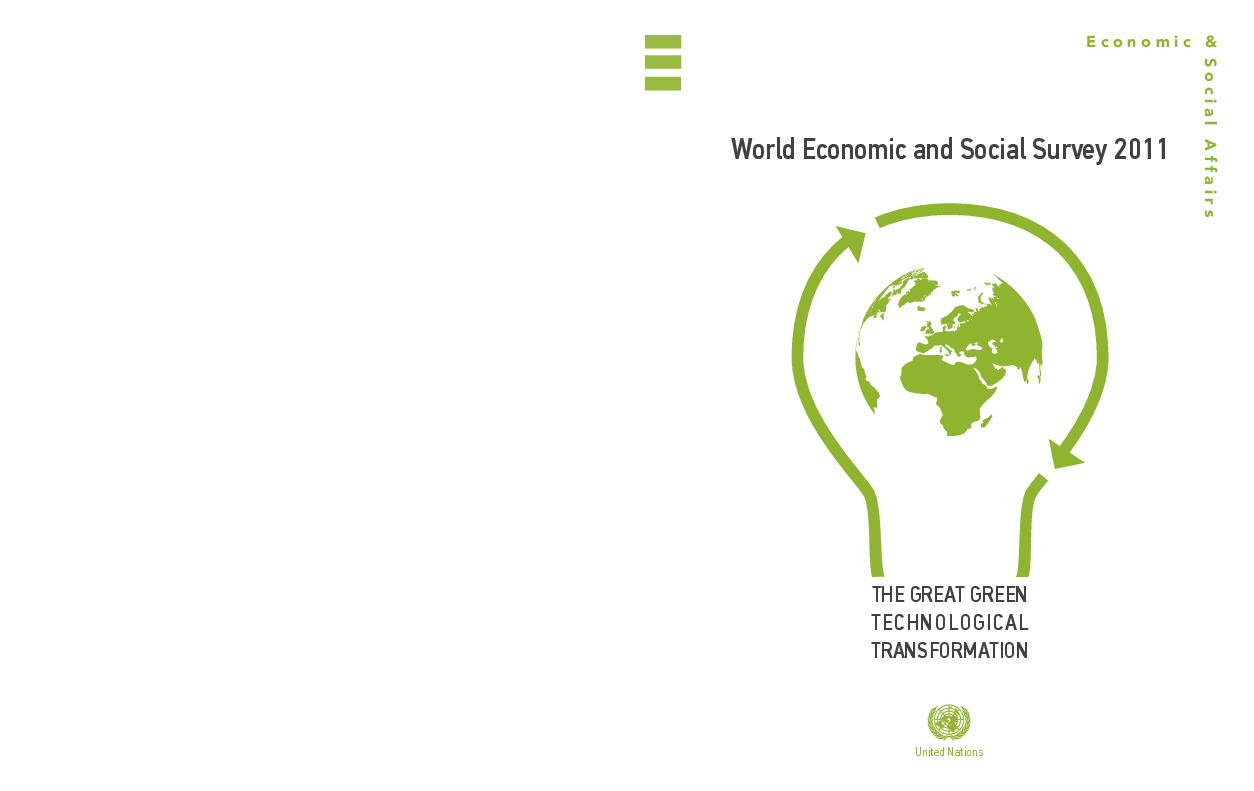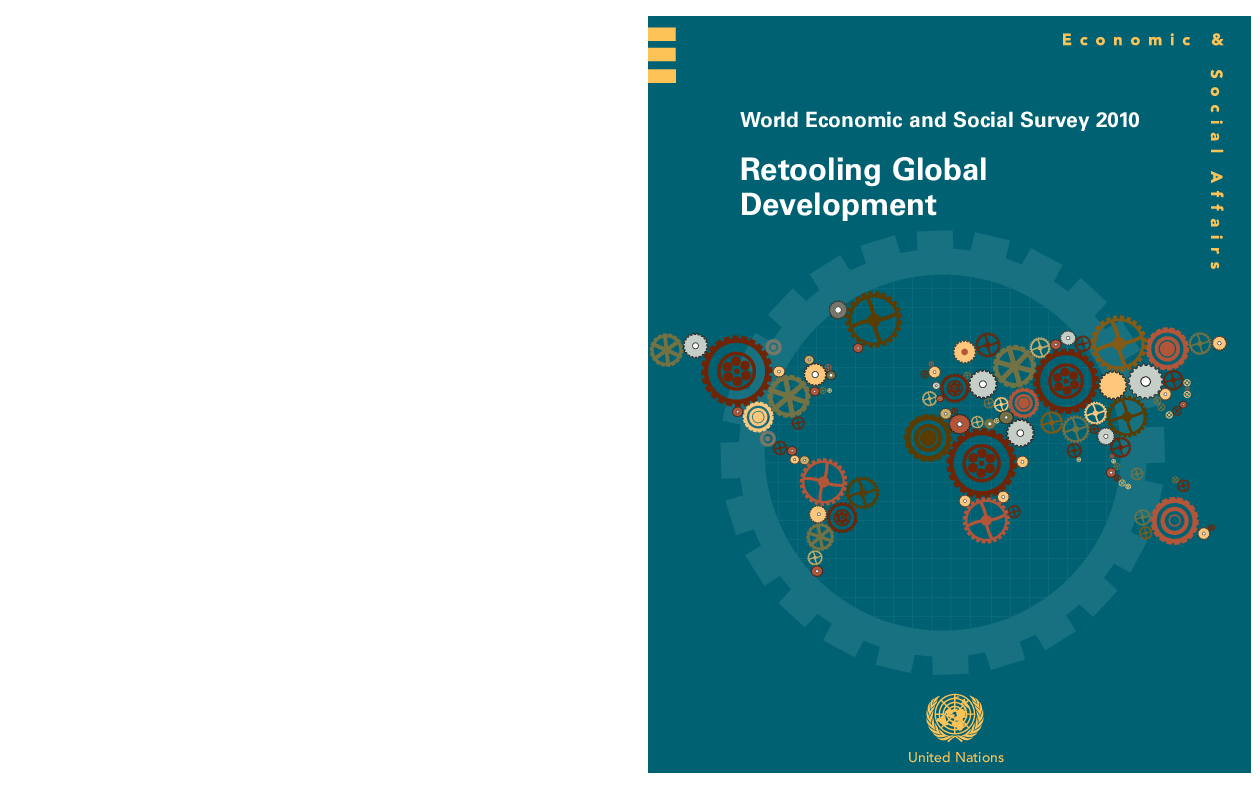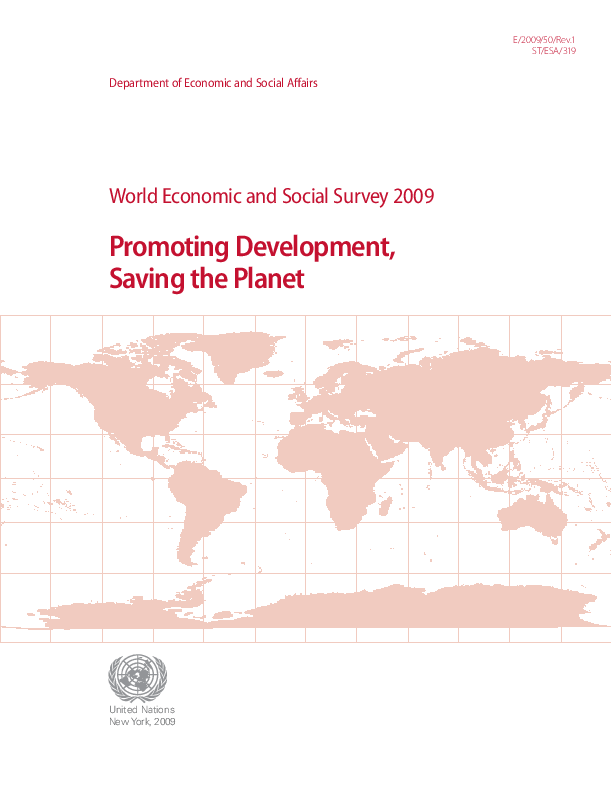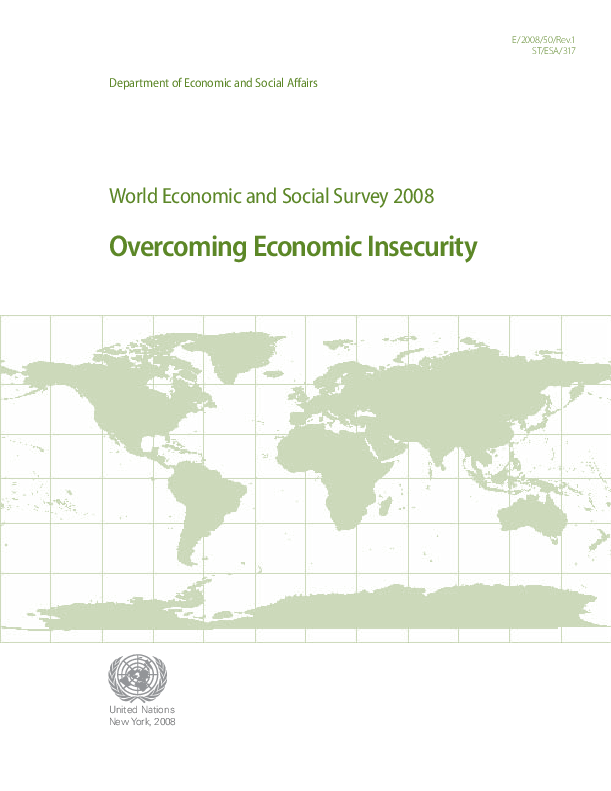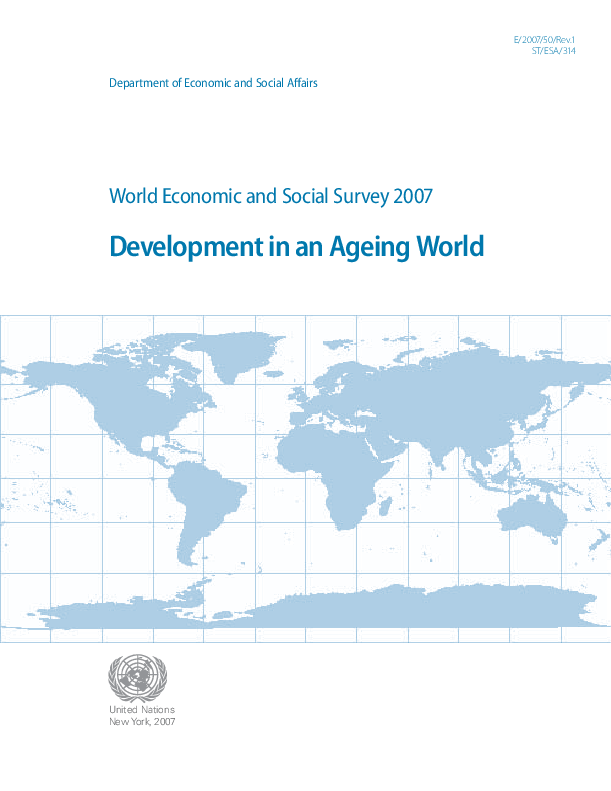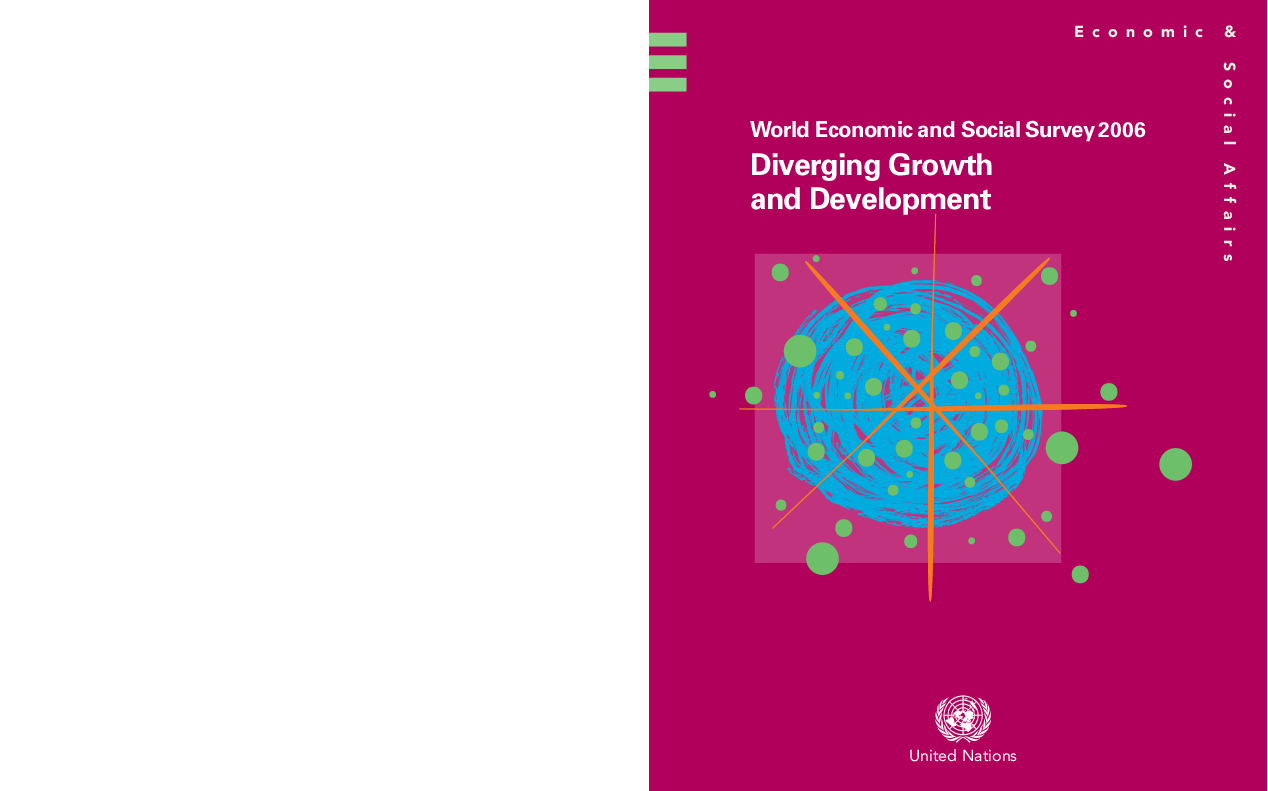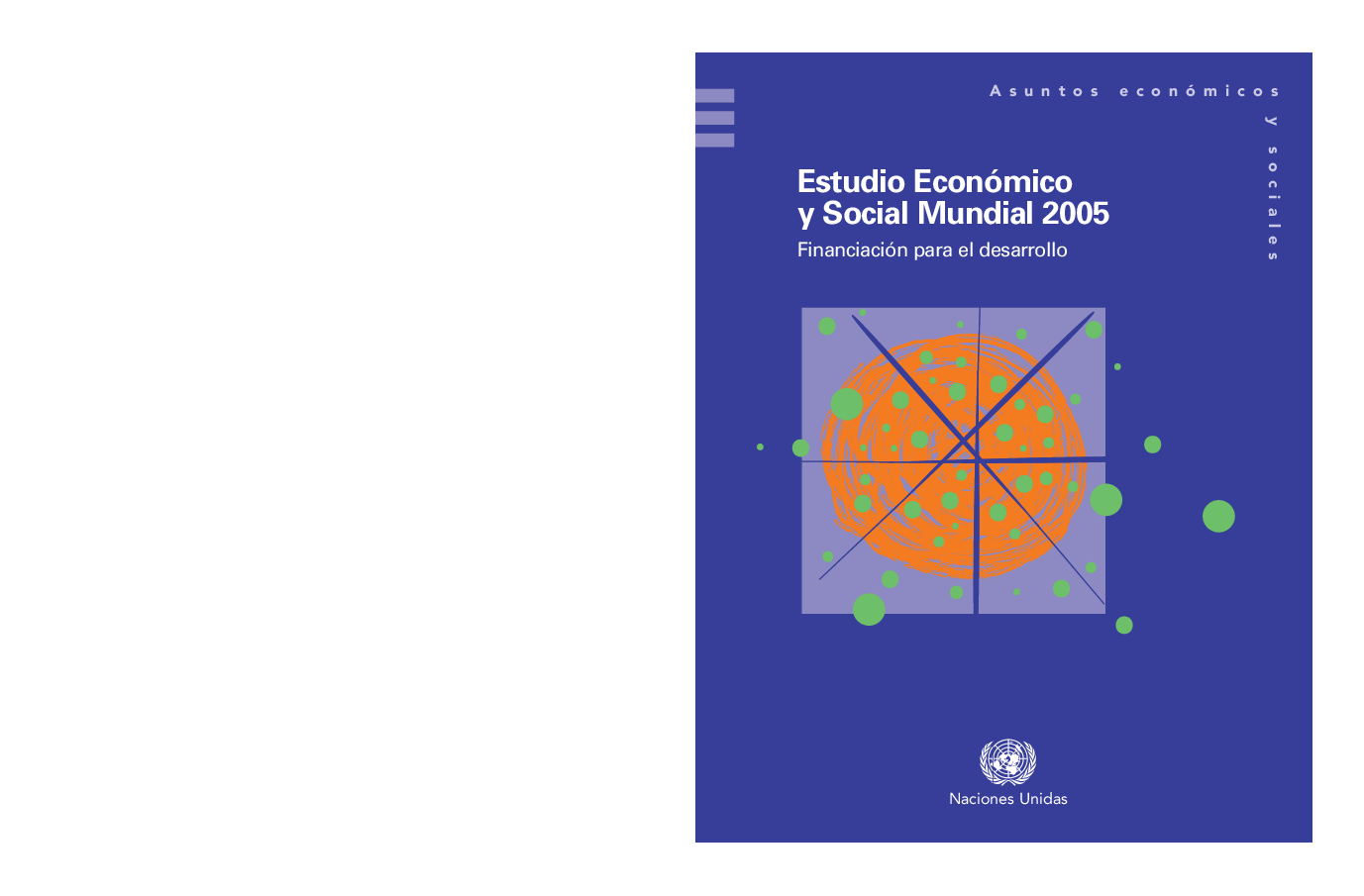Publications
Displaying 11 - 20 of 89
in developing countries? Alex Julca Download Paper Global Health Initiatives and Aid Effectiveness
in the Health Sector Oliver Schwank Download Paper Half a Century of Proposals for
'Innovative' Development Financing Barry Herman Download Paper Innovative Development Finance:
The Latin American Experience… Publications used in the preparation of the World Economic and Social Survey 2012
ISBN 92-1-109149-7 Download Full report: English Français Español Buy copy from UN Publications World Economic and Social Survey 2005 Fench
 Welcome to the United Nations
Welcome to the United Nations
